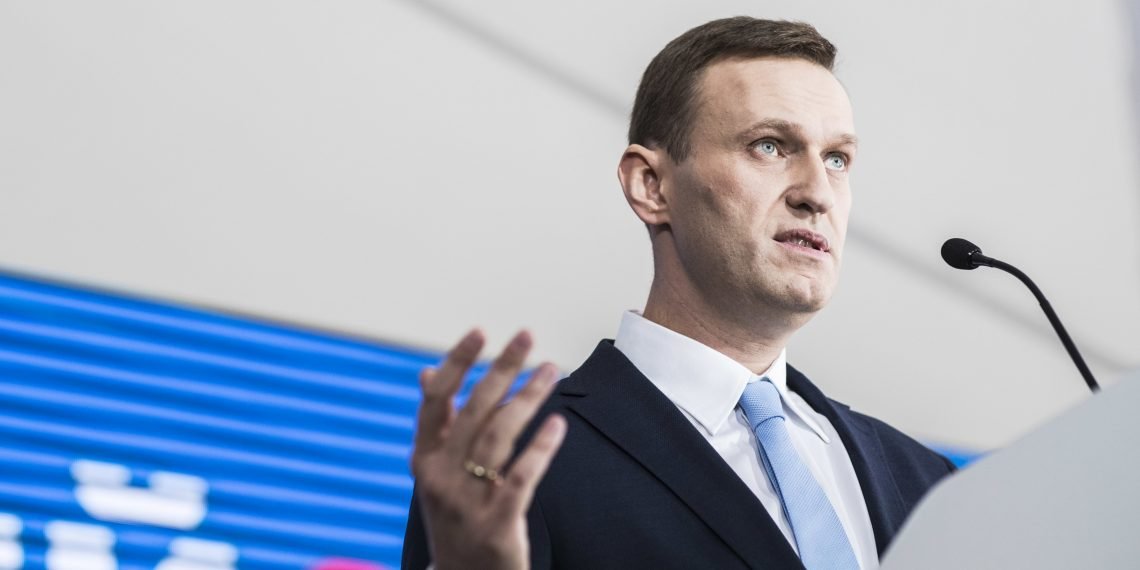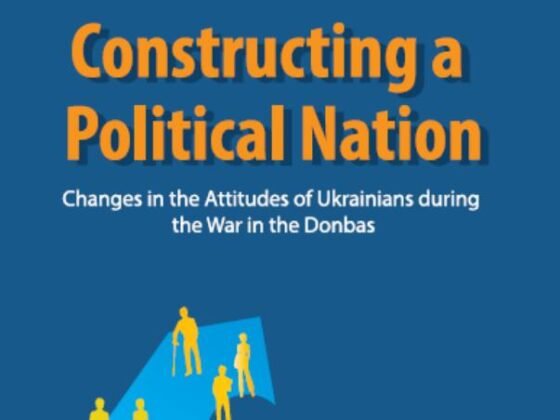The Kremlin’s political machine is shaping popular expectations about March 18th’s presidential election in Russia. For more than a year prior to the vote, the outcome of this election has been clear. In late 2016, First Deputy Head of the Presidential Administration Sergei Kiriyenko announced that President Putin would be re-elected with 70% of the vote and with 70% turnout in an contest that would serve as a “referendum on trust.” Mass media and Kremlin voices assure us that this victory will come with limited fraud at the ballot box. Studies demonstrate that victory will be achieved through a complicated electoral management system that has been honed over Putin’s nearly two decades of rule. The management system includes widespread mobilization of voters at their workplaces, schools and universities, and through their families, using both incentives and threats. Aided by this system, President Putin will defeat seven rivals handpicked to divide the opposition and illustrate his support across the ideological spectrum.
Like all Russian elections since 1995, this one is about power not ideas. President Putin has not presented voters with a bright vision of Russia’s future. For example, in his campaign address to his political party, United Russia, President Putin simply recycled the highlights of past contests. The 2018 campaign is devoid of solutions to the significant problems facing Russia’s political system, economy, and society. Mr. Putin’s support is based on his bold intervention in international affairs, which has exploited divisions within and between other countries rather than build capacity to influence global politics. Even this boldness rests heavily on a re-envisioning of the structure of the Cold War, rather than on leadership in a new multi-polar, globalized world. This vision remains the only message that is broadcast on state television.
Yet, despite all the advantages that the non-democratic regime bestows on its incumbent, there is little discussion of the inherent bias in Russian elections embodied by the treatment of Alexey Navalny. Navalny is an opposition leader and political innovator who has repeatedly challenged the regime at the ballot box, on the streets, and through new media platforms. He is barred from this election despite building a national campaign organization that relied on young activists to meet ballot access requirements.
Navalny garnered national attention in 2008 when he launched an investigation into the financial management of Russia’s energy giants. Three years later he emerged as an opposition leader who could rally support at the voting booth and in the streets. Early in 2011, an election year, Navalny labeled the state party, United Russia, “the party of crooks and thieves.” He used his widely-read LifeJournal blog to launch contests to design songs, and posters that popularized the slogan and raised awareness about the potential for electoral manipulation. After the opposition was barred from competing in parliamentary elections, he urged Russians to engage in a new type of vote protest: to cast their vote for any party but United Russia. He then worked with other opposition leaders to build an army of election observers, generating evidence of wide-spread election fraud. This strategy of linking online communities to real world political engagement brought together the organized opposition and discontented hipsters. In the wake of election fraud in December 2011, these groups kicked off the largest protests in Russia since the 1991 collapse of the Soviet Union.
Navalny’s strength lies in constantly reinventing opposition tactics. Since the 2011-2012 protest cycle, he has continued to use innovative tactics on new media to facilitate both electoral organization and protest actions. He founded the Anti-Corruption Foundation in 2011 to provide information about regime corruption and to give citizens a voice in reporting corruption activity. In January 2018, a court ordered the Foundation closed in a trial that lasted three hours. He also created websites to report anomalies in government contracting and in reporting potholes. When his popular blog post was banned from the Russian platform LiveJournal, Navalny took to YouTube, where he launched Navalny TV and produced several documentaries revealing high level corruption, most recently focusing on Russian reliance on Kremlin allies to engage in international meddling.
He has also continued to link protest actions and electoral competition. In 2013, he formed the Progress Party, which has been unable to secure ballot access but serves as a reminder of the state’s manipulation of electoral processes. Later the same year, Navalny collaborated with other opposition groups to run for mayor of Moscow and transferred resources, skills, and tactics from the 2011-2012 protest cycle into his well-organized campaign. In a paper published in 2016, my coauthor and I demonstrated that Navalny’s campaign relied on protest activists to run a campaign that met voters on the metro, on the streets, and in their homes. The campaign itself became a model of opposition success. The following year, Navalny took these tactics on the road and worked with other opposition figures to mount demonstration campaigns in five Russian regions.
These strategies informed his own presidential campaign in 2018. Navalny used the social media platform Telegram to organize regional offices with thousands of activists who worked to collect signatures to get him on the ballot. He detailed these efforts in his statement to the Central Election Commission on December 25, 2017, just moments before he was barred from running because of his criminal convictions. At the same time, Navalny remains the only opposition leader in Russia who can still bring tens of thousands on to the streets to protest the regime. In January 2018, Navalny supporters marched in cities across Russian in support of an election boycott.
All of this activity has come at a significant personal cost. Navalny is subject to constant harassment and arrest that has damaged his reputation among some Russians. Twice he has been convicted on trumped up charges of serious crimes. Both times, Navalny has received suspended sentences that bar him from running for office but preclude him from martyrdom. His brother and co-conspirator, Oleg, was not as lucky. Invoking a Soviet era practice of stifling dissent by punishing family members, the regime used politicized justice to ensure that Oleg serves a 3.5-year prison term for his conviction in the Yves Rocher embezzlement case. The European Court of Human Rights declared both convictions arbitrary decisions and ordered Russia to pay retribution.
It is not only the regime that diminishes Navalny’s standing. In Russia, liberal pundits also castigate him for radicalizing Russia’s youth in recent protests. They dismiss Navalny based on his nationalist rhetoric supporting Russian aggression in Georgia, deportation of illegal immigrants, and annexation of Crimea. These positions, together with his participation in the anarchist-nationalist group Russia March, raise legitimate concerns about Navalny’s policy positions. There is a significant debate in the Western press over whether these positions, some of which have evolved over time, negate his stalwart demands for respect for the formal political institutions that nominally shape electoral competition.
Alexey Navalny is a stark reminder of the true nature of this election and of Russia’s autocratic leanings. The Putin regime has been clinical in defining free and fair elections as those with a measure of (orchestrated) competition and limited electoral fraud. This definition ignores the persistence of widespread ballot tampering. It also ignores the role that the regime plays in stifling opposition, barring all but a few parties from the political stage, and limiting ballot access to friendly or impotent opposition. Russian citizens and many analysts claim that President Putin does not rig elections because he does not have to do so to secure victory. This characterization ignores his decades long intervention in the competitive structure of Russian politics, as well as the advantages conferred by his control over state budgets and the careers of governors, legislatures, and Central Election Officials.
It is impossible to know how durable President Putin’s support would be in the face of open competition and alternative visions of Russia’s future. This point was the focus of Navalny’s statement to the Central Election Commission:
“This isn’t about Navalny, but about the fact that we need a candidate who will at last speak plainly about what’s happening in this country — someone who will finally describe our reality, our lack of opportunity, our poverty, and more. I’ve done all this, and that is precisely why you don’t want to let me compete in this election.”
It is easy to get lost in debates about the nature and extent of President Putin’s support. Some of this support is genuine while some is manufactured, but all of it is distorted by the lack of significant opposition or debate in the public realm. It is highly unlikely that candidate Navalny could steal the victory from President Putin. However, open competition would jeopardize certain victory in the first round of the election, where candidates must gain 50% of the vote or face a run off. Examples from Russia, as well as comparative studies in political science, demonstrate that uncertainty about electoral outcomes energizes disaffected voters and brings the possibility of renewed protest at the ballot box and in the streets. The plight of Alexey Navalny demonstrates the authoritarian aspects of the Russian regime, which have robbed Russian citizens of the chance to choose political and economic modernization over corruption and control.
See this commentary at Public Seminar










